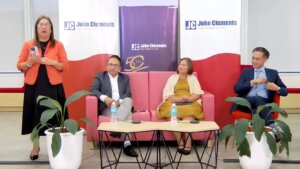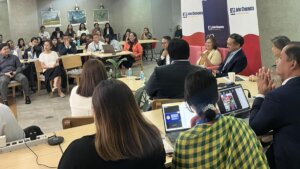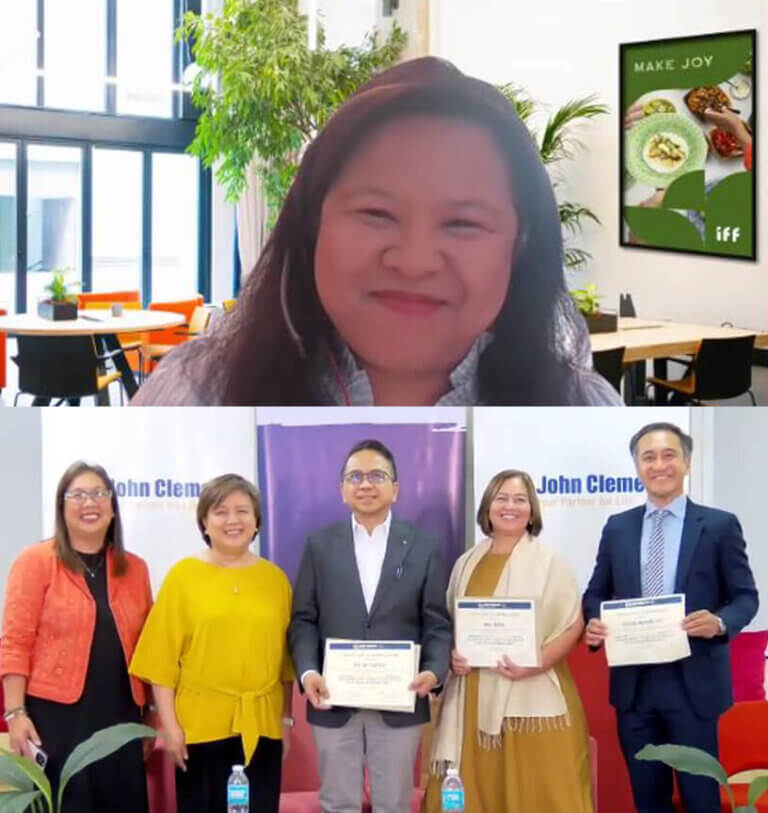How Global Politics Shape the Future of Work
In a time of economic disruption and political unpredictability, how organizations manage talent has never been more critical. During a recent fireside panel moderated by Richard Abendan, industry leaders Monette Sunga, Eric del Castillo, and Malu Inofre shared deep insights on how global dynamics are transforming the future of work.

Global Politics Are Rewriting the Talent Playbook
Labor protectionism, shifting national priorities, and economic slowdowns are driving companies to rethink traditional talent strategies. Countries like Singapore and the Netherlands are enacting policies that favor national employment, significantly impacting global workforce mobility.
This shift has compelled organizations to localize workforce development. Instead of relying on cross-border placements, companies are now investing more heavily in local talent through upskilling, leadership development, and digital transformation. Agile, resilient workforces are no longer optional—they’re essential.
The New Framework: Build, Buy, Borrow & Bot
As shared by Eric del Castillo, the post-pandemic era has given rise to a more flexible, strategic talent model known as Build, Buy, Borrow, and Bot—a framework designed to help organizations stay competitive amid constant disruption.
- Build: Invest in internal talent pipelines. Train and promote high-potential employees through leadership acceleration programs.
- Buy: Recruit external candidates with niche skills for urgent business needs or emerging technologies.
- Borrow: Tap into freelancers, consultants, or partners to scale capabilities quickly and cost-effectively.
- Bot: Implement automation and AI to streamline tasks, reduce overhead, and increase scalability.

This multi-channel approach enables companies to meet workforce demands without compromising long-term strategy. It also strengthens operational resilience by balancing human ingenuity with technological efficiency.
Emotional Intelligence Is the New Leadership Currency
According to Monette Sunga, traditional command-and-control leadership styles are no longer effective. In the current climate, emotionally intelligent leaders—those who lead with care, clarity, and connection—are in high demand.
Empathy, adaptability, and cultural sensitivity are now foundational skills. With AI taking over routine tasks, human-centered leadership has become the differentiator. Leaders who can listen deeply, respond thoughtfully, and align teams around shared purpose are shaping the future of work.
Eric del Castillo emphasized this further, underscoring the importance of data-driven decisions, emotional resilience, and the ability to pivot quickly in response to market signals.
Talent Resilience Is Built, Not Bought
Malu Inofre highlighted the Philippines’ unique position within this global shift. With global supply chains moving and remote work becoming mainstream, the Business Process Outsourcing (BPO) sector is more important than ever. Once viewed as transactional support, BPO teams are now recognized as key drivers of operational continuity and customer experience.
Companies must focus on identifying and nurturing their internal heroes—employees who demonstrate not only skill, but also commitment and agility. Upskilling, cross-training, and internal mobility programs are crucial for creating a resilient talent ecosystem that can withstand market volatility.
Strategic workforce planning is no longer a long-term goal—it’s a current necessity. Organizations must continually assess internal competencies, encourage collaboration across departments, and prepare talent for rapid shifts in direction.
Final Thoughts: Focus on the Future
The panel concluded with a strong message: businesses that thrive in uncertainty are those that invest in their people, embrace change, and lead with purpose.
Here are the key takeaways:
- Develop deep talent pipelines from within.
- Combine human skills with AI to future-proof operations.
- Lead with empathy, not just strategy.
- Champion flexibility, inclusion, and cross-border collaboration.
- Recognize and elevate overlooked contributors, especially in high-impact sectors like BPO.

The future of work is no longer a distant idea—it’s happening now. Global politics will continue to shape how talent is deployed, but companies that act with foresight, flexibility, and a people-first mindset will lead the way.
Future-Proof Your Talent Strategy
Stay ahead of global shifts with a people-first approach. John Clements Consultants offers tailored workforce solutions to help you adapt and thrive. Contact us today to get started.





